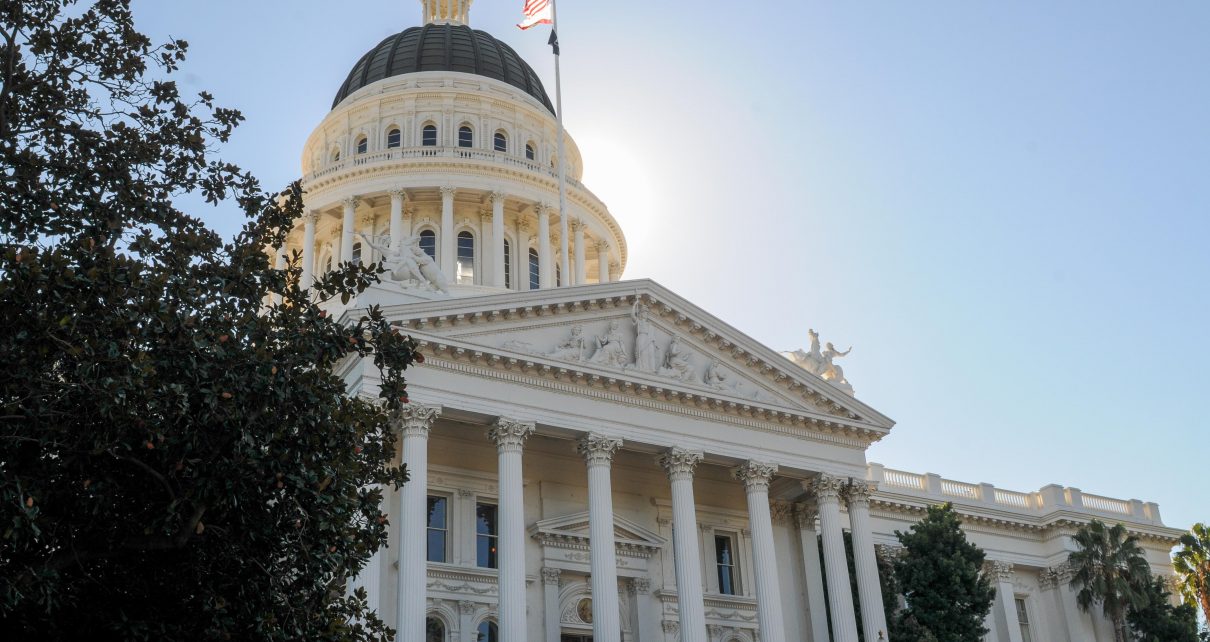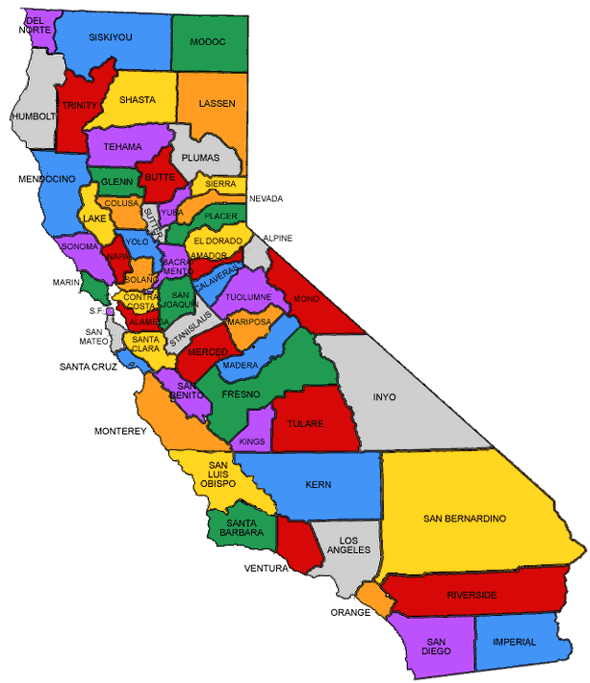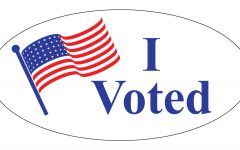
California State Capitol. (Photo: Kevin Sanders for California Globe)
California Sports Wagering Initiative Already Qualified for 2022 Ballot
Analysis: Purpose is to regulate and tax sports wagering
By Chris Micheli, November 2, 2021 12:19 pm
Already qualified for the November 2022 statewide ballot is an initiative constitutional and statutory measure that is # 19-0029A1. It has received the following title and summary from the Attorney General:
AUTHORIZES NEW TYPES OF GAMBLING. INITIATIVE CONSTITUTIONAL AND STATUTORY AMENDMENT.
Allows federally recognized Native American tribes to operate roulette, dice games, and sports wagering on tribal lands, subject to compacts negotiated by the Governor and ratified by the Legislature. Beginning in 2022, allows on-site sports wagering at only privately operated horse-racing tracks in four specified counties for persons 21 years or older. Imposes 10% tax on sports-wagering profits at horse-racing tracks; directs portion of revenues to enforcement and problem-gambling programs. Prohibits marketing of sports wagering to persons under 21. Authorizes private lawsuits to enforce other gambling laws. Summary of estimate by Legislative Analyst and Director of Finance of fiscal impact on state and local governments: Increased state revenues, potentially reaching the tens of millions of dollars annually, from payments made by facilities offering sports wagering and new civil penalties authorized by this measure. Some portion of these revenues would reflect a shift from other existing state and local revenues. Increased state regulatory costs, potentially reaching the low tens of millions of dollars annually. Some or all of these costs would be offset by the increased revenue or reimbursements to the state. Increased state enforcement costs, not likely to exceed several million dollars annually, related to a new civil enforcement tool for enforcing certain gaming laws.
The following is a summary of the measure’s provisions:
Section 1. Title
The ballot measure is known as the “California Sports Wagering Regulation and Unlawful Gambling Enforcement Act.”
Section 2. Findings and Declarations
The ballot measure makes 17 findings and declarations, including:
- In May 2018, the United States Supreme Court eliminated the federal prohibition on sports wagering.
- 19 states are regulating and taxing sports wagering.
- Unregulated and untaxed sports wagering is happening throughout California without any consumer or responsible gambling protections.
- Unregulated gambling enterprises are a threat to public safety and public health as they are often conducted by criminal elements.
- Sports wagering should be regulated and taxed in California to stamp out the black market of illegal gambling operations to allow adults the choice to participate in this activity with strong consumer protections.
- In keeping with our California values of protecting our children and young people, sports wagering must be tightly regulated.
- It must be limited to only adults over 21 years old.
- Accordingly, there shall be no advertising or marketing of sports wagering to children.
- In order to protect our students and our colleges and universities, sports wagering on high school sports and on California-based college teams must also be strictly prohibited.
- Current enforcement of gambling laws is inadequate.
- A well supervised sports wagering system will limit sports wagering to highly regulated and safe facilities that are experienced in gambling operations and with the financial resources to responsibly operate the activity.
- The best entities to safely operate sports wagering are Indian gaming casinos and Licensed Racing Associations.
- The California Sports Wagering Regulation and Unlawful Gambling Enforcement Act ensures that sports wagering is regulated and taxed, so adults who choose to participate in this activity can do so legally, while raising revenue for education, public safety and for mental health, ensuring strong consumer protections especially for children and strengthening enforcement of gambling laws.
Section 3. Purposes and Intent
The purpose of the California Sports Wagering Regulation and Unlawful Gambling Enforcement Act is to regulate and tax sports wagering in California and strengthen California’s gambling regulations and safeguards by:
- Regulating and taxing sports wagering, to take sports wagering out of the black market and create a regulatory structure that prevents access by minors and protects public safety by allowing sports wagering at highly regulated and safe facilities that are experienced in gaming operations.
- Permitting tribal governments to offer sports wagering, roulette, and games played with dice, after negotiations pursuant to state and federal law, as tribal governments have an expertise in gaming operations and possess the financial resources to responsibly operate sports wagering.
- Permitting Licensed Racing Associations to offer sports wagering as these associations are also highly regulated and are experienced in gaming operations.
- Ensuring that these facilities and operators are in good standing with the appropriate federal, state, and local regulatory agencies.
- Creating strict consumer protections to promote responsible sports wagering and protect children and public health.
- Imposing a 10 percent tax on sports wagering activity conducted by Licensed Racing Associations to fund programs related to problem gambling prevention and mental health and the implementation and oversight of sports wagering and other forms of gaming, and help finance the state’s general fund priorities related to education and public safety.
- Auditing expenditures of sports wagering revenue to ensure this revenue is spent properly and effectively.
- Protecting public safety by strengthening the enforcement of California’s current gambling laws to allow Californians to hold illegal gambling activities and operations accountable.
- Increasing enforcement of existing gambling rules to ensure that all establishments that offer gambling opportunities play by the rules and follow the law.
- Ensuring that establishments that offer legal sports wagering play by the rules by making them subject to appropriate audit standards
Section 4. Expands Types of Gaming in Constitution
The Governor can negotiate compacts, subject to ratification by the Legislature, for the operation of specified games by federally recognized Indian tribes on Indian lands in California in accordance with federal law. The ballot measure would expand the eligible games to include “roulette, games played with dice, and sports wagering.”
In addition, beginning on January 1, 2022, licensed racing associations may offer sports wagering so long as wagers are physically placed by patrons at the race track at which the licensed racing association hosts live horse race meetings.
“Sports wagering” includes any professional, college or amateur sport or athletic events, but does not include high school sports or events, a sport or event in which any California college team participates.
Section 5. Sports Wagering Regulation and Unlawful Gambling Enforcement.
Article 12 (commencing with Section 19670) would be added to Chapter 4 of Division 8 of the Business and Professions Code. Article 12 would be called “Sports Wagering at Licensed Horse Racing Facilities.”
Section 19670 would add a definition of “Licensed Racing Associations.”
Section 19671 would provide a Sports Wagering Tax, which would be 10% administered by the California Department of Tax and Fee Administration. All revenues resulting from the tax would be deposited into the California Sports Wagering Fund.
Section 19672 would establish the California Sports Wagering Fund. Payments made to the state pursuant to tribal-state compacts related to sports wagering may be deposited into the California Sports Wagering Fund.
Section 19673 would determine the Distribution of Moneys from the California Sports Wagering Fund. After paying for state costs of collecting the tax, each fiscal year beginning in 2022-23, the Controller would be required to disburse the money deposited in the California Sports Wagering Fund as follows:
- 15% to Department of Health for problem gambling prevention and mental health grants for local programs;
- 15% to Bureau of Gambling Control for costs of enforcement;
- 70% to the General Fund.
Section 19674 would impose an Age Limit for Sports Wagering, prohibiting any person under 21 years of age from placing wagers directly or through an agent on any sport event at a licensed racing association racing track. No one under 21 can present false evidence or age and violation of this section would be a misdemeanor.
Article 18 (commencing with Section 19990) would be added to Chapter 5 of Division 8 of the Business and Professions Code. Article 18 would be called “Unlawful Gambling Enforcement.”
Section 19990 would establish the Private Attorneys General Act for the Gambling Control Act. Any person who violates any unlawful conduct would be liable for a civil penalty of up to $10,000 per violation in a civil action brought in the name of the people of the State of California by the Attorney General. The Attorney General would also order a temporary or even a permanent closure for repeat violations of this law.
In addition, any person or entity that becomes aware of any person in violation of any conduct made unlawful may file a civil action for civil penalties if, prior to filing such action, the person or entity files with the Attorney General a written request for the Attorney General to commence the action. All civil penalties would be deposited in the California Sports Wagering Fund.
Section would prohibit Marketing and Advertising Sports Wagering Directed to Minors. The following terms would be defined: “advertise,” “advertisement,” “advertising sign,” “market,” “marketing,” Any advertising or marketing placed in broadcast, cable, radio, print, and digital communications could only be displayed where the audience is reasonably expected to be 21 years of age or older, as determined by reliable, up-to-date audience composition data. In addition, a facility operating sports wagering would be prohibited from advertising or marketing sports wagering in a manner intended to encourage persons under 21 years of age to participate in sports wagering.
Section 19992 would require an Audit for Sports Wagering Facilities. The Bureau of Gambling Control within the Department of Justice would perform all investigatory and auditing functions over facilities that operate sports wagering, unless otherwise provided in a tribal-state compact.
Section 6. Amendments
This Act would have to be broadly construed to accomplish its purposes. The provisions of Section 5 may be amended so long as any amendments are consistent with and further the intent of this Act by a statute that is passed by a two-thirds vote of the members of each house of the Legislature and signed by the Governor.
Section 7. Severability
The provisions of this Act are severable.
This measure will be given a proposition number next summer and be voted on by the statewide electorate on November 8, 2022.
- Frequently Asked Questions about State Agency Ethics Training - April 26, 2024
- Frequently Asked Questions about When Elected Officials Take Office - April 25, 2024
- Frequently Asked Questions About Ethics Training for Local Agencies - April 24, 2024





Why not legalize all vice: all drugs, gambling, prostitution as we have already legalized killing (babies and old people), entry level drugs, shoplifting, open borders. we can be the new wild, wild west. next gov pomp will outlaw guns within state limits and defund the police so that criminals can commit bigger crimes without any fear of being caught, prosecuted or sent our closing prisons.